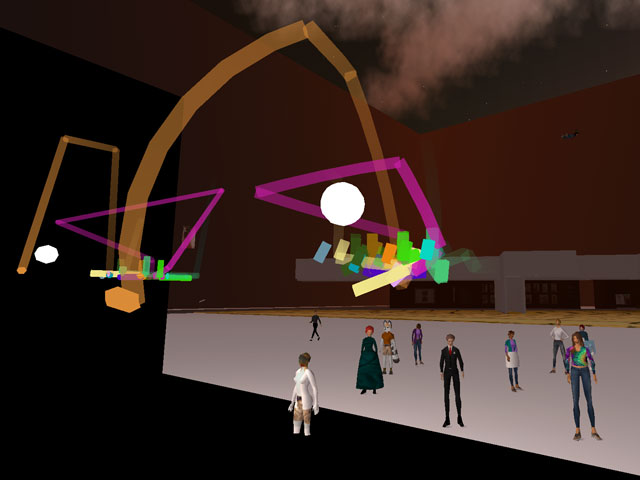"Labs" - laboratoria, where work takes place, learning through experimenting, practice as research, experimental research and development, in teams, technology enabled, expert practice allied with apprenticeship in the same research project ...
Aim - to develop new models of collaborative research/pedagogy/publication - to enable better team work in the Humanities
Aim - to enable such collaborative work in transdisciplinary fields - from the fine arts to the physical sciences
Aim - to explore new kinds of project management
Aim - to develop the model of studio collaboration found in Architecture and the (Performing) Arts - practice as research
A diverse academic ecology
Why? Because I have seen how this can lead to better research and pedagogy
see also
Collaboration and research networks in the Humanities
Team work in the Sciences is the norm. Multi-authored scientific papers are the norm. In the Humanities and Arts I am regularly asked of team projects - just what did so-and-so actually do? The norm is to assign credit to individuals. This is a major obstacle to encouraging collaborative work, because collaborative research does not attract the same kind of recognition in an academic career as the monograph and single authored paper. Up to now.
I do not think the problem lies solely with appointments and promotions committees refusing to grant tenure on the basis of jointly authored papers. I think it is about a broader issue of trust - how do you know that this particular person in a particular team was not a freeloader/fellow traveler?
I suggest that a way to address this legitimate concern is to center collaborative work in the Arts and Humanities on labs and studios. Precsiely to associate collaboration with continuity and community - and reputation. This, of course, requires diverse forms of peer review.
An established Lab has a history independent of its members. A track record will establish a reputation that facilitates trust in the collaborative success of the lab - that people there genuinely work together. So when a new joint publication is produced, it will be far easier to associate indvidual effort and talent with that of the group - individual scholarship gaining credit from its location within a discipline that is precisely identified with its peer practitioners and community.
The Humanities Lab as peer community of researchers
I think we are well on the way to achieving this in Metamedia and Stanford Humanities Lab.
See also the mission statement of my lab in the Archaeology Center - [link]

Stanford Humanities Lab/Metamedia in their Lab space in the online world Second Life
